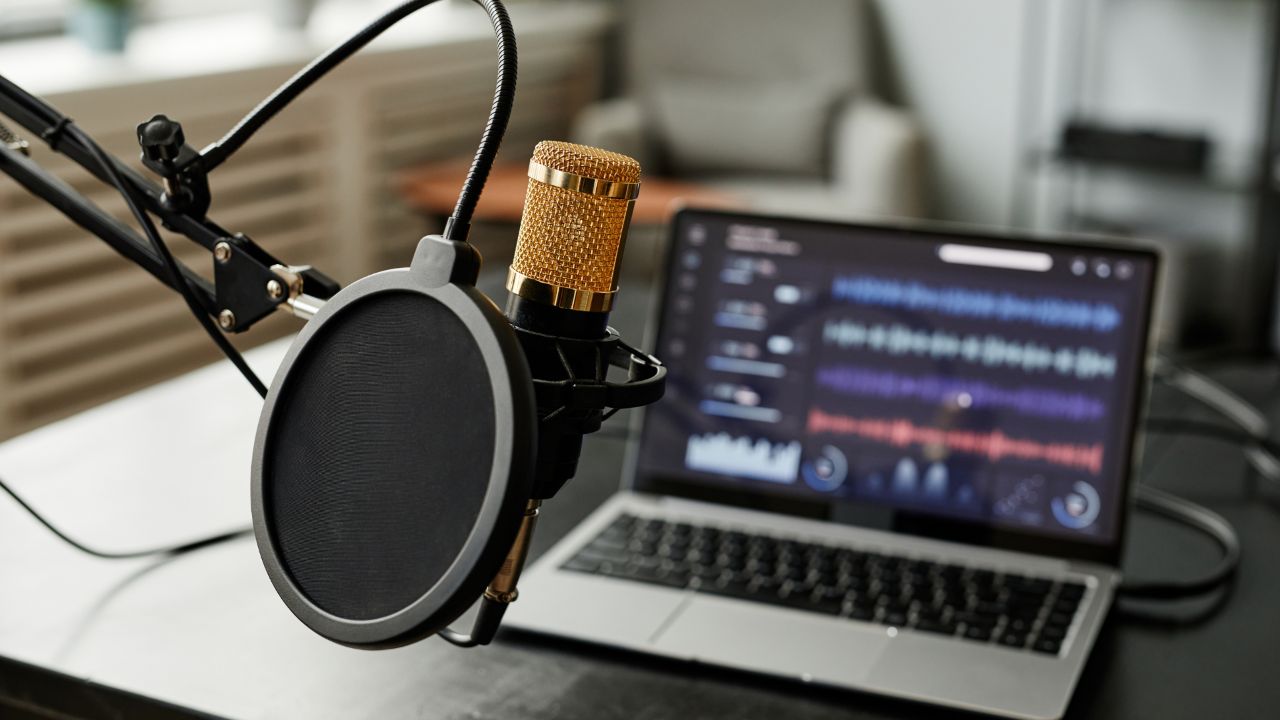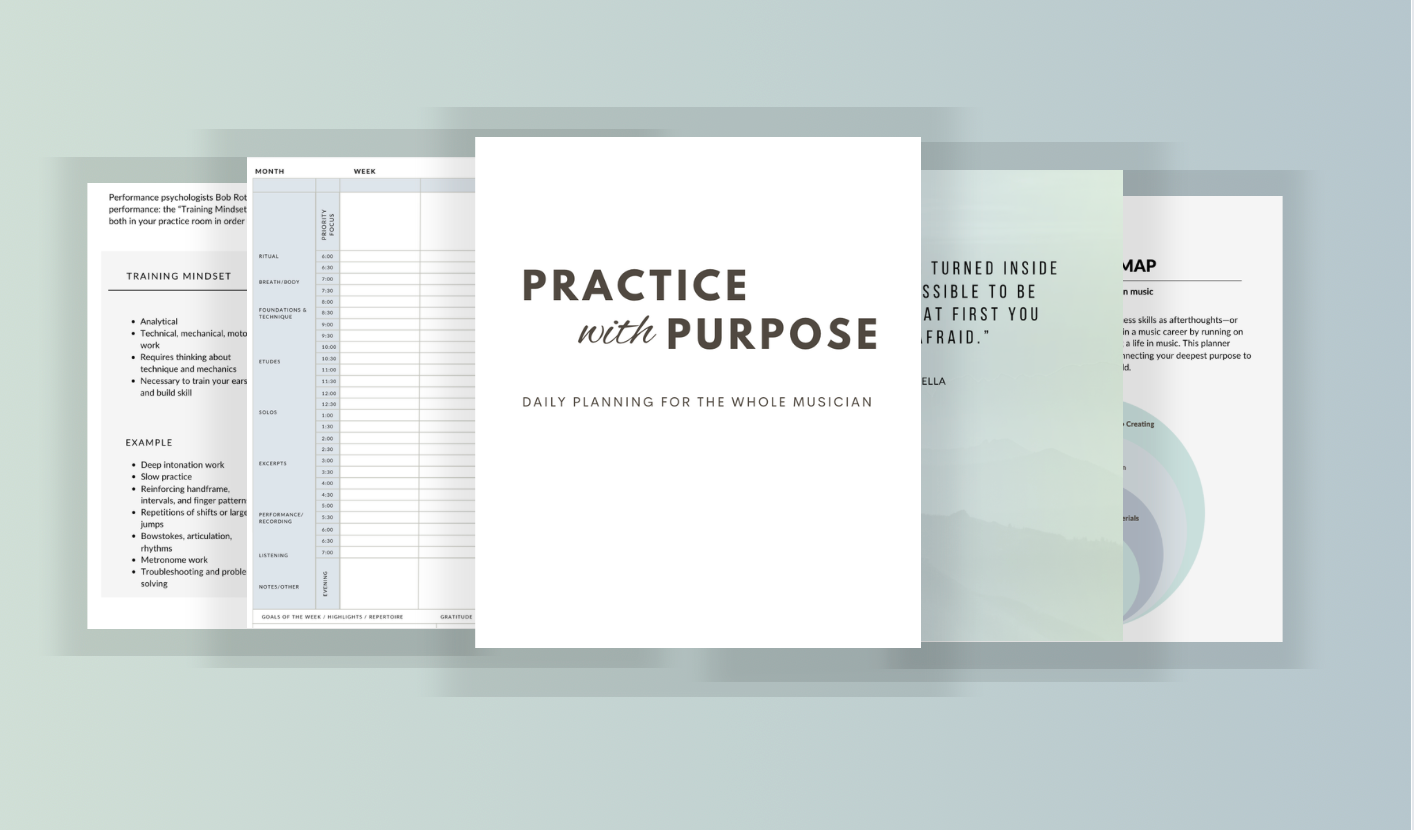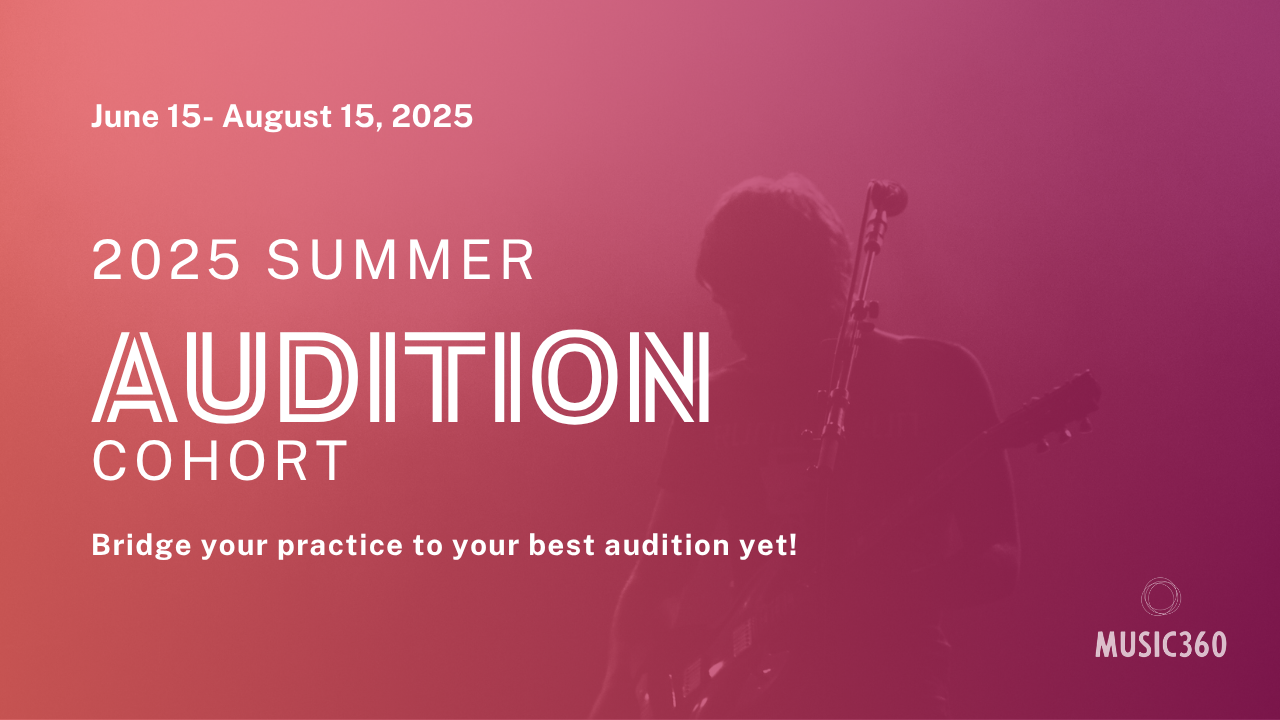6 Tips for Recording

We have all been told that we should be recording more often in our practice routines. But, it can be intimidating or stressful especially if it is something you’re less familiar with. Here are 6 tips to getting started:
- Start Small
If you haven’t been recording yourself consistently, make sure that you are starting small! Do a short section of an excerpt you’re preparing for an audition or even just a scale to get used to what it’s like to record yourself and listen back. This will make it a little less daunting to listen back and a little easier to make adjustments as you go to your recording set up.
- Do Recording Sandwiches
Make a take of what you’re practicing, then listen back to what you did, reflect on what you did, record the same section, and then listen again. This allows you to notice the changes and adjustments you’re making and hear your progress as it happens!
- Focus on one skill at a time
When listening back to recordings it can be easy to slip into trying to focus on everything little thing that wasn’t quite how you wanted it. Instead, focus on one skill at a time, whether that’s phrasing the first time you listen, intonation the second time, rhythmic accuracy the third time.
- Aim for variety
If you’re recording the exact same passage day after day, you’re likely going to get tired of listening back to the same section over and over again. Aim for variety so record etudes one day, the solo you’ve been preparing the next, a tricky orchestral part you’re working on the day after that.
- Do audio and video
You might be able to catch things on video you might not ever notice if you only do audio. You might find that you hold a lot of tension in your left shoulder or you grimace every time there is a challenging section. These can be helpful to catch in the practice room rather than finding out after a performance! Additionally, if you’re doing just audio, you might be able to notice things differently than if you’re getting distracted by the weird face you make when stressing about a hard passage.
- Be objective
This might mean that you need some time before you listen back to a recording right away. But do your best to be as much of an objective, third-person listener when reviewing your recordings. If you notice your inner critic a little too loud and nasty when you’re listening, take a step away and come back to it when you’re in a better head space.
Want to jumpstart your recording process? Click here to access our FREE 5-Day Recording Challenge!


